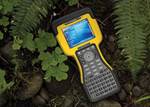Aerospace, Medical Expansions Solidify Niches
Dynomax Inc. has earned the prestigious AS9100 Revision C quality certification.
Dynomax Inc. (Wheeling, IL)—a provider of injection moldmaking, molding, machining and engineering services in industries like medical, aerospace and defense—has earned the prestigious AS9100 Revision C quality certification (a rigorous audit process) to raise the level of service it offers its currentaerospace and defense customers and has updated its micro molding and tooling machine fleet to better serve the tight tolerance requirements of these customers—as well as its medical customers.
Family owned and operated, Dynomax was founded in 1986 by Dr. Richard Zic, who serves as the company’s President and CEO. According to Marketing Manager Patty Martucci, Dynomax has more than tripled in size over the past three years in both employees and facilities. The company was ripe for growth. Walter Zic, Dynomax’s Vice President of Operations, points out that Dynomax has been ISO 2001 certified since 2003, and achieved AS9100 certification in 2008.
Last September, the company was certified under AS9100 Revision C, which enables it to be a “certified supplier” with its aerospace and defense customers. “Dynomax’s high glass content thermoplastic and thermoset injection molding and tooling operations are supported by a vertically integrated engineering and manufacturing team, incorporating the latest design process technology for mold flow analysis,” notes Walter. “By expanding and upgrading to more than 35 cutting-edge machines, and utilizing cellular manufacturing and robotic machine tending, we are able to provide superior customer service and go from design to part in three weeks or less.”
Included in the equipment expansion is all-electric injection and insert molding machines employing six-axis robots for repeatability of ±0.0001”, Walter notes. “Dynomax frequently molds micro-parts made of glass-filled and abrasive materials, as well as thin walled workpieces,” he elaborates. “This presents a number of difficulties, including excessive tool wear, voids and air pockets. The material dictates the design of the tool. Many of our workpieces call for tolerances of ±.0005”, which means the tool must be held to far closer tolerances—somewhere in the neighborhood of .0002” or less—to anticipate material shrinkage.”
To market its capabilities, Dynomax relies on the solid reputation it has with its customers in the aerospace and defense markets—industries the company has been serving since its inception. “We are used to serving high-demanding customers with high-precision components for mission-critical equipment where quality has an impact on protecting lives,” Dynomax’s Business Development Director Mark Zic emphasizes.
“The same expertise and quality for serving these industries are also necessary for the medical industry.” Dynomax’s complete in-house tooling and molding operations enable the company to go from design to part in under three weeks, Mark maintains. Mark reports that the company’s endeavors have been successful thus far. “Our aerospace and defense growth has been primarily through our value-added engineering and contract machining operations,” he notes. “We plan on the same for the medical device market. Exhibiting at the Medical Design & Manufacturing (MD&M) show in Anaheim this month is part of our game plan to expand our presence in this market over
the next year.”
Related Content
-
MMT Chats: Mold Builder, Master Molder and Marble Maker? Part 1
MoldMaking Technology Editorial Director Christina Fuges introduces new MMT Editorial Advisory Board Member Mike Close, Sr. Tooling Engineer for SMC Ltd. in Devens, Massachusetts. This episode is brought to you by ISCAR with New Ideas for Machining Intelligently.
-
Eden Tool and Eden Manufacturing: A Story of Resilience, Growth and Innovation
This critical parts manufacturer, founded on solid tooling fundamentals, didn’t get derailed with the unexpected passing of the owner because leadership was already building a solid business, not just a good tool shop. Here’s how they managed change incrementally… and they’re not finished yet.
-
U.S. Economy Indicates Prospects for Moldmakers
An examination of the U.S. economy suggests its resilience against a recession, yet a mixed outlook for moldmaking and plastics persists.














